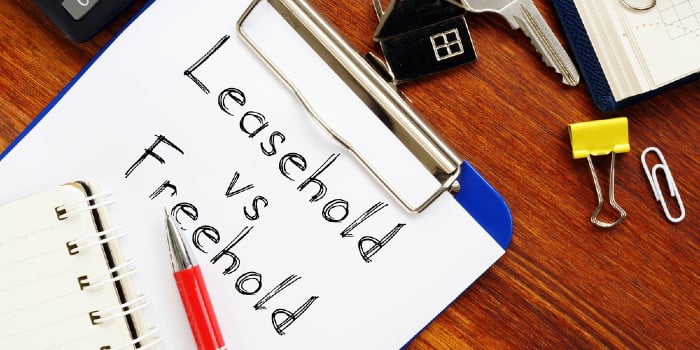28 November 2023 – Yesterday the Secretary of State for Levelling Up, Housing and Communities unveiled the long-awaited Leasehold Reform Bill in parliament. But a new study warns some of its measures could lead to 10% price increases on short leasehold stock.
Despite Michael Gove, the Housing Secretary, suggesting that the planned Leasehold Reform Bill might be scrapped, it was announced during the King’s Speech earlier this month.
And yesterday it was introduced to parliament, setting it on its way to becoming law. The bill promises a ban on the sale of new leasehold houses, not flats, though, and to make it cheaper and easier for leaseholders to buy the freehold, among other measures.
Many campaigners have welcomed the introduction of this long-awaited bill, as it could spell the end of this system seen by many as feudal. However, a new study suggests that some of the measures could cause prices to rise by 10%.
Leasehold Reform Bill To Ban Creation Of New Leasehold Houses
The legislation that the Housing Secretary introduced to parliament will bring much needed reform of this part of the property sector for England and Wales. Among the various measures it covers is the ban on the creation of new leasehold houses.
However, flats won’t be covered under this ban. In addition to this, the bill will also provide greater protections for leaseholders, either by strengthening existing rights, or grant new ones.
Under the new legislation, it will be easier and cheaper for leaseholders to extend their lease or buy the freehold of the property. The standard lease extension term will be increased to 990 years for both flats and houses.
Freeholders or managing agents will be required to provide more transparency over service charges by issuing bills in a standardised format. The proposed legislation will also make it easier for leaseholders to take over the management of their building.
Leaseholders will no longer be required to pay the freeholder’s costs when making a claim. Access to redress schemes for leaseholders to challenge poor practices will be extended.
Opaque and excessive buildings insurance commissions for freeholders and managing agents will be banned.
The current requirement for leaseholders to have owned their property for two years before they can extend the lease or buy the freehold will also be scrapped.
Campaigners have largely welcomed the measures contained in the reform bill as a step in the right direction.
Some Measures Could Cause An Increase In Prices

However, a new study by Bayes Business School and Knight Frank warns that two of the proposed measures could lead to a 10% price increase on prices for leasehold properties.
The study was commissioned by the UK Collaborative Centre for Housing Evidence (CaCHE). It said that one of these measures is the planned extension of the standard leasehold term to 990 years.
The second is the proposed scrapping of the so-called ‘marriage value’. This is a premium the leaseholder has to pay to the freeholder to extend a lease that has less than 80 years left.
The assumption of the study is that all short-term leaseholds would be extended. Because a leasehold with a shorter term has less value than one with a longer term, this would increase the average prices for the short leasehold stock by 9.9%.
This in turn could lead to a 3.2% increase in average prices across the whole leasehold market. As such, these measures would reduce housing affordability.
Unfortunately, as they stand the proposals also come with large unforeseen consequences regarding affordability and pricing within the leasehold market.
Dr James Culley, Data Science Lead and Partner at Knight Frank
So while the aim of the proposed legislation, to make it easier and cheaper for leaseholders to extend their leasehold, is commendable, there might be an unwanted negative consequence.
Our Opinion
The leasehold system definitely needs an overhaul. We have seen too many horror stories in recent years of leaseholders being unable to sell their leasehold due to exorbitant ground rent and service charges.
Many people had to put their lives on hold, while they are trying to get out of these situations. And here at PropertyRoad we welcome any legislation that aims at making the system better.
However, ultimately it’s a feudal system that needs to be abolished completely. We are pleased to see that the Leasehold Reform Bill will ban new leaseholds of houses. But we can’t help but think that it should also include new flats.
Shared ownership of buildings, where the residents decide on matters such as ground rent and service charges and have control over how the building is managed, seems to us a better way.
This would eliminate high fees and charges and would give leaseholders a sense of real homeownership. Of course, this also comes with challenges, but at least leaseholders have the ability to solve any issues together in a way that works for them.
While this new bill is definitely a step in the right direction, it is certainly not going far enough and might even create new problems in terms of affordability.




